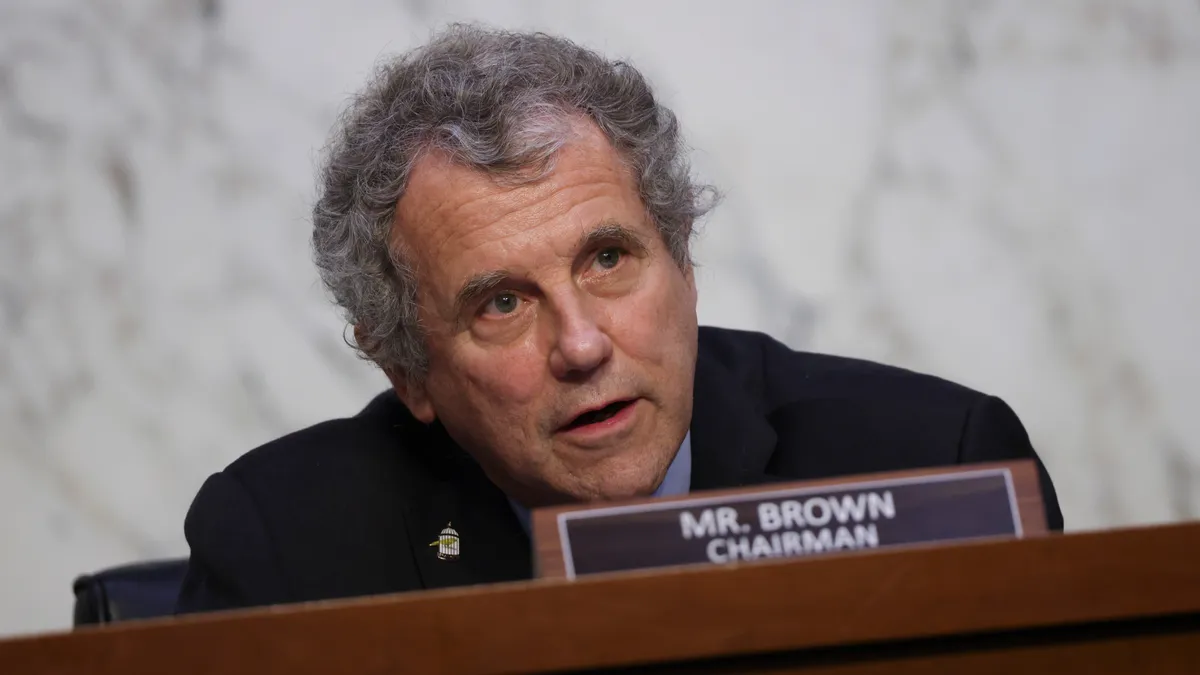The head of the Senate Banking Committee is calling for the Federal Deposit Insurance Corp. to look into fintech startup Tellus’ claims that it can offer rates higher than typical savings accounts.
In a letter to FDIC Chair Martin Gruenberg, Sen. Sherrod Brown, D-OH, voiced concern over Tellus’ high-interest savings accounts despite not being insured by the FDIC. He urged the U.S. regulator to review and monitor the fintech’s business practices and risk management procedures for the safety of its customers.
“Although Tellus claims that it is not a bank, a fact its website repeatedly reminds customers of, I am concerned that Tellus’s practice of marketing high-interest deposits to fund real estate loans may give consumers the false impression that their money is as safe as a deposit at an FDIC-insured bank,” Brown wrote in his letter.
Founded in 2016, Tellus raised $16 million in a seed round in November, led by Andreessen Horowitz, to focus on scaling its team and continuing to build out its platform. The fintech claimed in a statement that it offers an alternative method for people to accrue interest “by leveraging the U.S. single family home loans to deliver users higher yields than typical savings accounts, along with access to regular withdrawals.”
A recent article in Barron’s that raised red flags surrounding the fintech’s potential risk to customers prompted Brown to contact the FDIC.
Brown in his letter outlined Tellus’ business model and its marketing practices, which he said often mislead consumers by giving them the false impression that their money is in safe hands.
Tellus uses customer deposits to extend mortgage loans and then offers high interest rates to customers from the funds generated by their real-estate lending, he noted. These higher-than-normal interest rates seem lucrative to customers who are unaware of the risks associated with it, Brown said, citing the Barron’s article.
The article says that Tellus relies heavily on unadvertised risky investments including loans to real estate speculators and distressed borrowers which could lead depositors to losses, according to Brown. Though the fintech claims that it invests in “borrowers in some of the country’s most stable real estate markets”, it does not specify that its lending market is primarily the San Francisco Bay area — a region seeing a decline in property values, he highlighted in his letter.
“This downswing may pose increased risks to Tellus depositors if Tellus borrowers default on their loans,” Brown wrote.
Though Tellus reminds its customers that it is not a bank, its alleged partnership with JPMorgan Chase and Wells Fargo does not exist, according to the Barron’s article, Brown said.
There has been widespread anxiety about accounts that are not FDIC insured, leading people to withdraw millions of dollars from regional banks since mid-March to protect their assets, including the failed Silicon Valley Bank and First Republic Bank.
Brown reminded Gruenberg of the agency’s past letters to crypto companies, which made false and misleading statements about FDIC insurance — a common practice in that space, according to Brown.
The banking committee chairman also sent a letter to Jeromee Johnson, president and CTO of Tellus. He sent in some queries regarding the fintech’s services, policies and procedures for protecting customer funds, risk assessment model and its partnership with JPMorgan Chase and Wells Fargo. Brown asked Johnson to provide answers by May 16.
“I have received the request for information from Senator Brown. We are also aware of the Barron’s article that prompted the Senator’s concern,” said Johnson in a written response to TechCrunch. “While many of the facts in that article are true, we strongly disagree with his portrayal of our business as misleading or unduly risky.”
“Tellus is a startup that is on a mission to improve the financial health of American consumers. We are grateful for — and share — the Senator’s concern for the well being of our customers. I and Tellus will be cooperating fully with the request for information,” he added.
Tellus did not respond to Banking Dive’s request for comment by press time.














